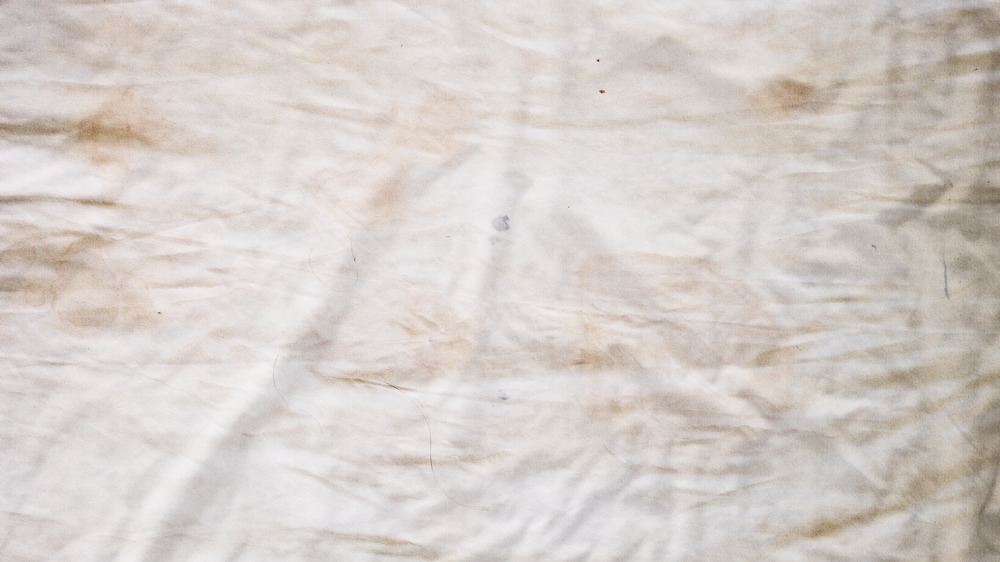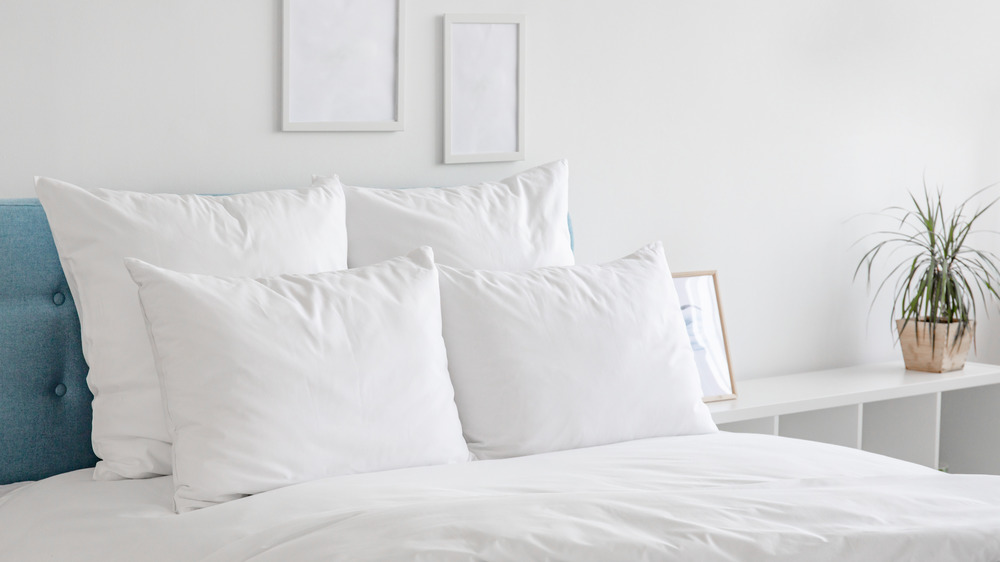When You Don't Wash Your Sheets, This Is What Happens
Did you know you should be washing your sheets once a week? Philip Tierno, a microbiologist at New York University, tells Business Insider that your sheets collect an array of bacteria and fungus. The longer you go without washing them, the more bacteria and fungi your sheets accumulate. If left unwashed for too long, your sheets could actually make you sick.
A 2018 study published in Environmental and Occupational Disease backs up these claims. Researchers collected bedroom allergens from nearly 7,000 different U.S. households and found three or more detectable allergens in 90 percent of them. For those who don't usually suffer from allergies, these allergens can still cause an allergic reaction.
Your pillows alone can have up to 16 different types of fungus on them, and that's not counting what's on your sheets. Besides the bacteria and fungi, the gunk on your sheets includes sweat, sputum, anal secretions, soil, lint, animal dander, pollen, dust mite debris, and even feces. If you could see what was on your sheets, you'd wash them more often.
How to wash your sheets
Now that you know what's lurking in your sheets, it's time to wash them! Remember, you've got to wash your sheets and pillowcases every week. These bedsheet cleaning tips come from Good Housekeeping and Merry Maids.
Check for any stains and pretreat them with a stain remover. Throw them in the washing machine without anything else. Some like to wash their sheets with towels, but doing so will likely cause your sheets to collect the lint from the towels, so wash your sheets separately.
Use the hottest water possible to kill as many germs and allergens as you can. Check the tag for instructions on water temperature, but go with warm water if you're unsure. Choose the regular or normal setting (avoid the heavy-duty setting), and add a laundry detergent. Wait until the rinse cycle to add fabric softener. Though not necessary, fabric softener will give your sheets a pleasant scent.
Tumble dry on low for as little time as possible, which will take some trial and error to figure out, but will be worth it, as drying your sheets for too long can cause them to shrink.


